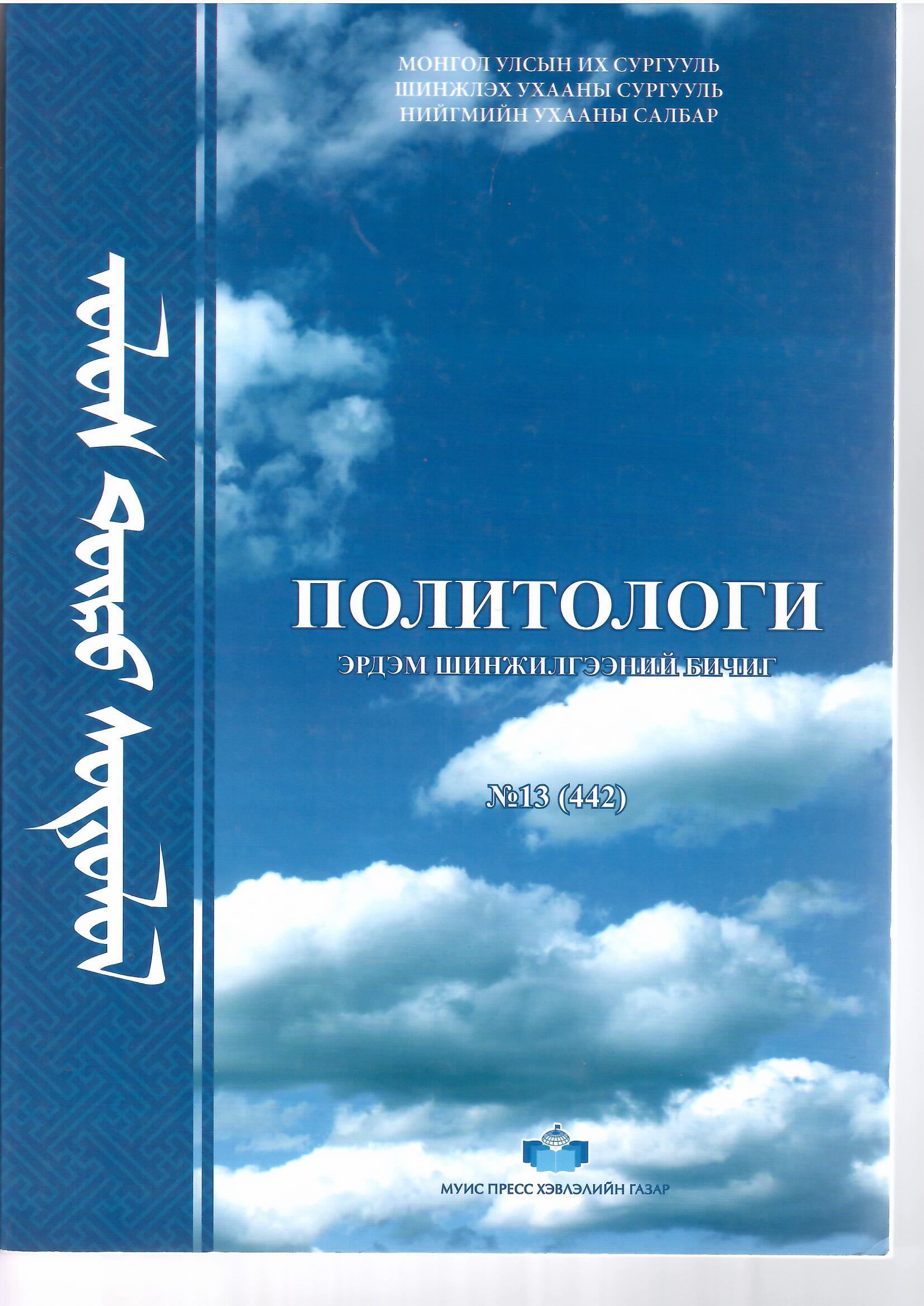еРөнХИйЛөГЧИйн заСаГЛаЛТай ПОСТ-кОММУнИСТ УЛСУУдЫн ТОГТОЛцООнд аЖИГЛаГдаЖ БУй еРөнХИй ШИнЖҮҮд
Keywords:
Засаглал, ерөнхийлөгчийн засаглал, пост-коммунист улсууд, перестройка, төрийн тогтолцооAbstract
Post-communism is the period of political and economic transformation or transition in former communist states located in parts of Europe and Asia, in which new governments aimed to create free market oriented capitalist economies. Presidentialism, where there is a directly elected fixed term president, where cabinet members are not collectively responsible to the legislature and where there legislature serves for a fixed term. Parliamentarism, where there is either a monarch or an indirectly elected president and where the prime minister and cabinet are collectively responsible to the legislature. Semi-presidentialism, where there is a directly elected fixed term president and a prime minister and cabinet who are collectively responsible to the legislature.




